Our favorite editorial references
This week on A People’s Guide to Publishing podcast, Joe and Elly talk answer a reader question about what editorial reference books we use. Ohhhh boy were you not expecting these answers!
This week on A People’s Guide to Publishing podcast, Joe and Elly talk answer a reader question about what editorial reference books we use. Ohhhh boy were you not expecting these answers!
This week on the People’s Guide to Publishing podcast, Joe and Elly answer a reader’s question about our unlikely paths to becoming book editors.
This week on the People’s Guide to Publishing podcast, Joe and Elly talk about how to take your book publicity effort to the next level in order to get the word out and find the right readers!
Today on the People’s Guide to Publishing podcast, Joe and Elly talk about that sticky question of how to get the word out about your book.
How do you talk concisely and compellingly about this thing you’ve written that’s so complex and meaningful to you? We tackle the myths, the mayhem, and the meltdowns and hopefully leave you with some good perspectives and advice for going out there and telling people about the book you’ve written or published.
This week on the People’s Guide to Publishing podcast, we answer a reader question about one of our favorite topics: selling books at events! Joe and Elly are joined partway through the episode by surprise special guest Jess Driscoll, who came into the stream early for our interview with her about her new book, The Magic of Pockets. She brought her many years of experience with selling at zine fests and farmers markets to the conversation and we all learned a lot and had fun remembering events of yore and making plans for an eventful post-pandemic future.
This week on the People’s Guide to Publishing podcast, we had the honor of interviewing Friday Gladheart, creator of The Practical Witch’s Almanac (you can pick up the 2023 almanac now!).
We had a fascinating conversation about our parallel paths—Friday put out the first almanac the same year Joe started Microcosm, and both were rooted in the early internet—and while the video didn’t record, the audio came through loud and clear. Enjoy!
This week on the People’s Guide to Publishing podcast, we talked with Jess Driscoll about her sweet new book, The Magic of Pockets: Why Your Clothes Don’t Have Good Pockets and How to Fix That. We had a great conversation about traditional and underground publishing (Jess is a longtime zinester, blogger, and multi-media creator), what it was like working together (including some solid advice for coming up with and pitching a book idea), and of course our many and big feelings about pockets in clothes! Below the video, you can read the answers to some more questions Jess kindly answered for us, plus her original pitch that sold us on the book.
What inspired you to write your book?
In August 2018, I made a zine every day, and one of them was called, Thanks, it has pockets!, titled after a viral tweet about how femmes compliment each other’s clothes. It was a tiny, messy guide to how to sew pockets into your clothes, and I always thought I might go back and make it a longer zine. Then in September 2018, I visited Portland and the Microcosm store, and I immediately recognised that the zine could be a book, and it might belong on those shelves.
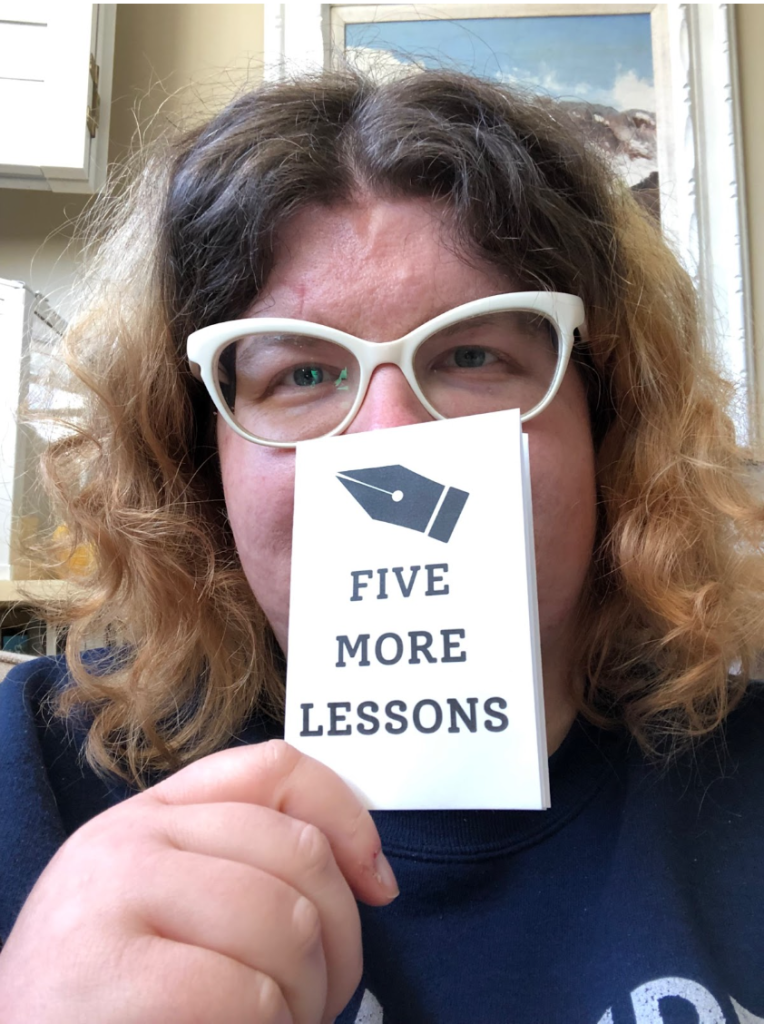
What was it like to publish with Microcosm?
It felt like working on a project with friends. I met Elly and Joe in 2019, and it just confirmed to me that I wanted to publish a book with Microcosm. I’m a teacher in my daily life and a DIY kinda person at heart; I was already writing instructional zines. Elly was a great editor, always there with gentle nudging reminders and helpful suggestions for this first time author.
What was the submission/query process like for you?
I have been thinking about publishing since I was a teenager, so I’ve read every book and website about the querying process. But the submission guidelines on Microcosm’s website were so comprehensive and clear that I just followed them exactly. I workshopped the pitch with my two closest friends, then sent it in. I woke up the next morning to an enthusiastic acceptance!
Do you still have your original query to us? Are you willing to share it?
Yep! Here it is:
Thanks, It Has Pockets! How to Alter Your Clothes and Cut Down Capitalism is do-it-yourself guide for sewing pockets into store-bought, pre-made clothing, the kind that never seems to come with pockets built-in. While many sewing books teach by guiding students through the construction of an entire garment, this book has a tight focus for those who don’t want to sew their whole wardrobe, who simply want to learn a skill to make life a little better. This book is a practical guide to a single alteration that makes a big difference.
Thanks, It Has Pockets! fits among Microcosom’s DIY titles, like Fix Your Clothes, Bread of the Resistance, and Honing Your Craft.
Thanks, It Has Pockets! How to Alter Your Clothes and Cut Down Capitalism contains step-by-step instructions and line drawings to sew six simple pockets, along with suggested alterations to give the reader freedom to create exactly the pockets their wardrobe needs, while sidebar essays and lists teach a short history of pockets. All of these projects can be sewn by beginners, and most can be made by hand, no machine required.
[note: Jess’s original pitch included an annotated table of contents which was excellent but we’re not sharing it here because it’s also very long!)
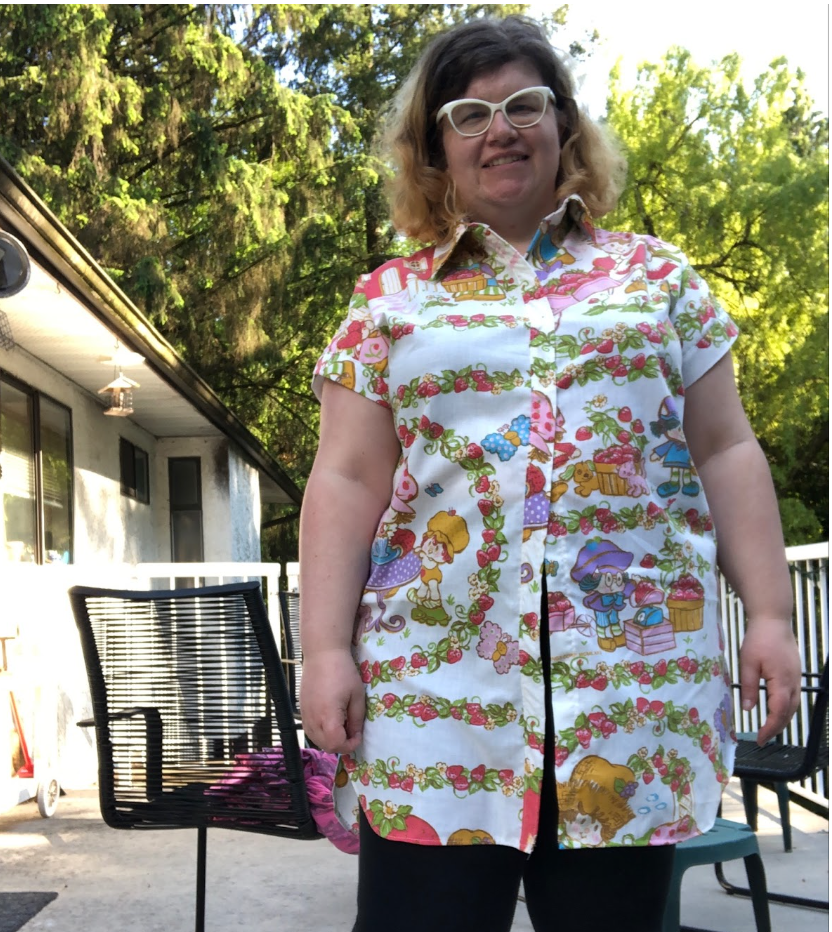
What else have you written?
In another lifetime, I thought I might fiction, but for the last five years, my focus has been nonfiction and zines. Most of them are free to download on itch.io. This year, I started making zines on a livestream so the audience can watch me write and do layout and follow the whole process. As someone who has been blogging since 2001, I enjoy seeing works in progress as much as the finished product.
What are you currently reading?
After a long few years of not having the attention span for books, I’ve been trying to read again. Currently, I’m in the middle of Four Thousand Weeks by Oliver Burkeman and Easy Beauty by Chloé Cooper Jones, and I’m rereading Animal Farm by George Orwell because I’m teaching it.
What’s the best book you read in the last year?
Wintering: The Power of Rest and Retreat in Difficult Times by Katherine May. I started a year ago after reading a Charlie Warzel article which referenced it. Even though Wintering was written before the pandemic, it’s the perfect pandemic book, about seasons and cycles and quiet living. I picked it back up again in the spring of 2022 and finished it, like the universe knew exactly what I needed at that moment.
What’s next for you?
I haven’t pitched my next book yet, but I’m thinking a lot about living alone, how life changes with the seasons, and boredom.
Where can people find you online?
Jessdriscoll.com is my website, and I write a regular newsletter, which will be the best place to connect with me going forward. I’m feeling burned out on social media (again), and I’d love nothing more than to spend the next year reading and writing and hiking rather than spending time on someone else’s platform.
Any in-person events coming up soon?
I would love to do some events! But it just isn’t safe yet. The pandemic isn’t over. I was sick in February 2020, and this year, I’ve been dealing with a chronic fatigue like I’ve never felt before. And then I got Covid in September. But I’ve been planning some videos for my YouTube channel, and I’m available for your podcast!
S. Park’s new short story collection, Even Cowbots Get Blue Balls, is part of our Queering Consent erotica series. He’s as prolific in turning in polished copy as any editor could dream of, and we’ve also published a series of short-story zines by him, with more books and zines in the works. We spoke with him for our latest episode of the People’s Guide to Publishing podcast, and he was kind enough to answer some written interview questions below.
What inspired you to write your book?
As it’s a collection of five stories, there were five different inspirations! Overall, though, given the book’s theme of loving the “other” my own thoughts and feelings about queer identities had a large impact. The mainstream likes to make their villains and their monsters queer for a reason, and while I think fighting back against that is a valid response, embracing it is as well. If you tell me that a man loving another man is monstrous, then how about a man loving a demon? A robot? A vampire? If you are going to be horrified by how strange and alien my love is, then I might as well go all the way and be as strange, monstrous, and horrifying as possible! And yet in this collection especially once you read the stories, they’re not horrifying at all. They’re consenting people who care about each other finding ways to bridge divides that vary from two princes, one of whom merely happens to be a fairy, to a human being who’s meant to slay demons instead finding pleasure with one.
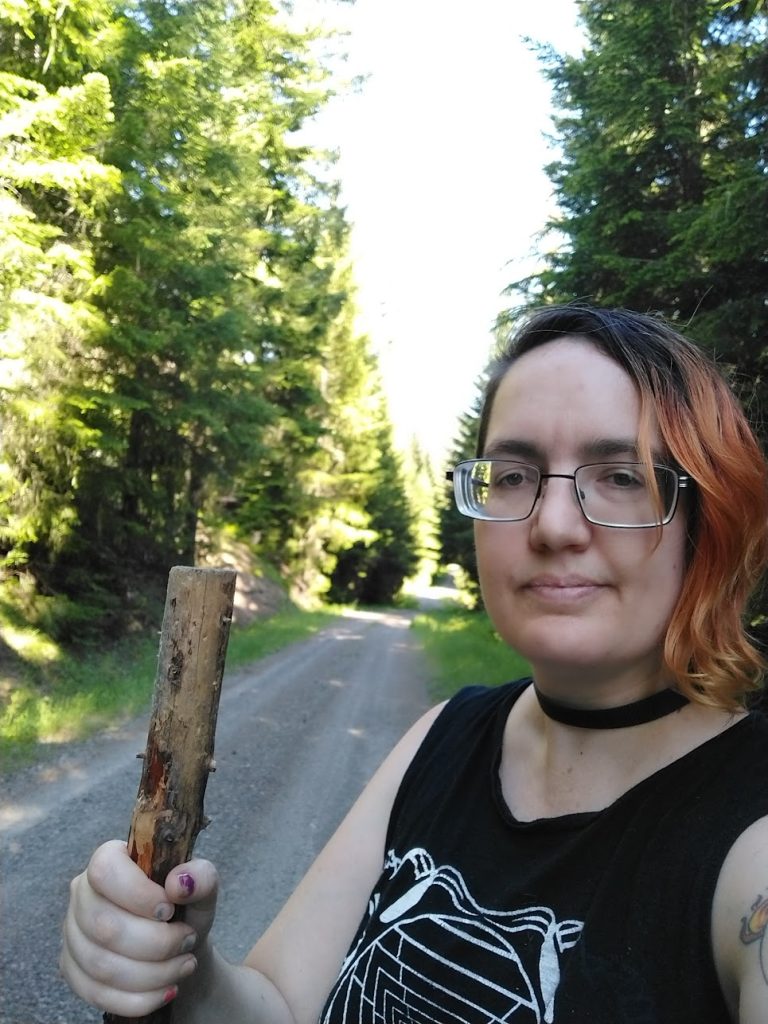
What was it like to publish with Microcosm?
It’s been pretty smooth sailing so far. I’ve been lucky to work with an editor whose style and approach suits me pretty perfectly, and my prior experience with other small presses meant that nothing in the process was a shock, though I was mildly surprised when I found out there was a “marketing team” (Microcosm is by far the largest publisher I have worked with, several have been single individuals running “basement” passion projects!) and that said team wanted to change my book’s title to be more provocative. I can’t help my continuing urge to point out that the cowboy is the human and the robot is the city-slicker in the story in question, but I will admit that Even Cowbots Get Blue Balls is both more memorable, and gives more of a clue to the steamy nature of the contents than The Only Chance Inn does!
What was the submission/query process like for you?
I was incredibly lucky to be able to compress that process, due to knowing my editor Lydia personally before submitting to Microcosm. They had read a number of my fanfiction stories, so when their work on the Queering Consent series came up in conversation, they already knew that I wrote the sorts of things that would fit well under that label.
What else have you written?
I write a lot! I’ve written millions of words of fanfiction across fandoms from the silly to the obscure to the incredibly horny. (My Little Pony, The Chronicles of Amber, and Hades the video game, to name one in each category!) I’ve also published a few previous books, ranging from erotic romance (The Sacrifice, published by JMS Books under my previous pen name of Stephanie Park is probably the best of those) to post-apocalyptic fantasy adventure featuring vampires (Blood Choice, a book originally published by the Austrialian Jaffa Books, alas now defunct, but that was picked up by Thurston Howl Press, and is still available through them.) I’ve also had quite a few short stories in assorted anthologies, and I even self-publish some zines on my own. I am constantly full of thoughts and ideas, and I can’t help but have some of them come out as stories!
What are you currently reading?
I have a stack by my bed that includes Flipping by R. Lee Fryar, which I’m only about a third of the way through but which is an interesting world where ghosts depend on their haunted houses to continue to exist as ghosts, so of course a flipper messing with this ghost’s house isn’t going to go over well! I’m also slowly working my way through Antifa Splatterpunk, an anthology from Cursed Morsels which is fascinating reading but which I find I have to take a small chunk at a time, as it’s intense, and Your Body is Not Your Body, a trans-themed horror collection from Tenebrous Press with much the same problem. And I just started—as a pleasant break from those—Trans-Galactic Bike Ride, from a publisher called Microcosm, you might have heard of them! In non-fiction I am reading War Before Civilization by Lawrence H. Keely which is a stellar book and an amazing look into the fundamentals of human nature as relates to violent conflict, “civilized” or not.
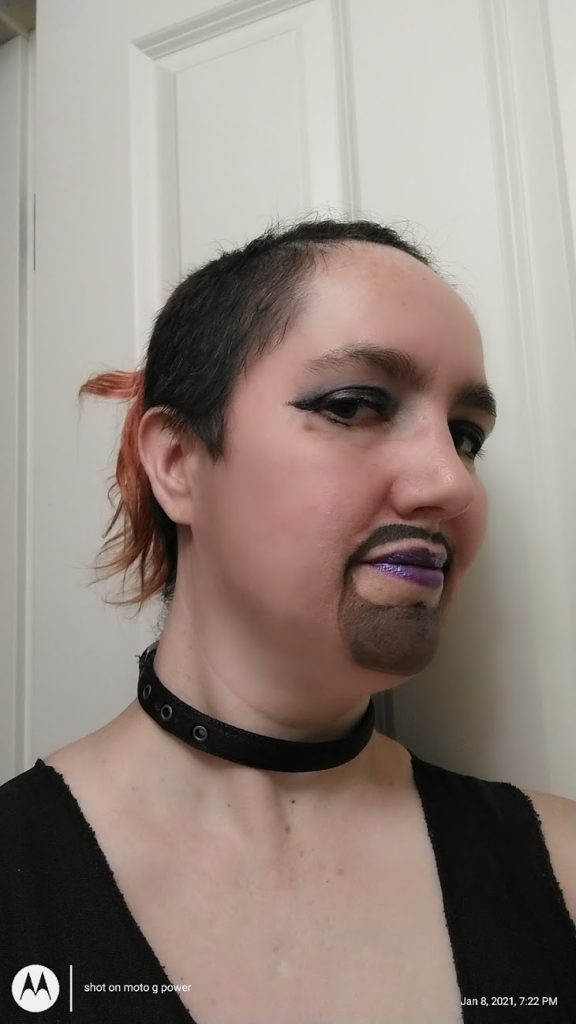
What’s the best book you read in the last year?
I write more than I read these days, which is probably a failing of some kind or other. I would probably have to say Nettle and Bone by T. Kingfisher, which falls short of being perfect by about one millimeter. Said millimeter being that I think the male “hero” character was actually unnecessary and could have been written out entirely, though I understand why he got put in and why he wasn’t written out. Sometimes “good enough” is good enough, and oh WOW is this a “good enough” book! More than good enough, it has everything I could ever want in a dark fairy tale world, including perhaps my favorite fairy godmother of all time.
What’s next for you?
More of whatever inspires me, which could be anything, but also definitely more of the same. I adore writing queer relationships, happy sex, and strange, inhuman beings who maybe turn out to be awfully human after all, and I’ve already pitched and had accepted another collection of similar stories to Microcosm, not to mention the direct sequels to several stories in the Cowbots book that are in the works as well! So there are many steamy, consensual, kinky, queer, and monster-loving tales to come. I’m also enjoying self-publishing a zine series of queer horror stories, in which queer people aren’t the real monsters, bigots are, and the queer “monsters” get bloodily satisfying revenge. So if, for example, a trans man being able to summon a demon to send after the cis transphobe who assaulted him sounds like a fun time, those might be up your alley.
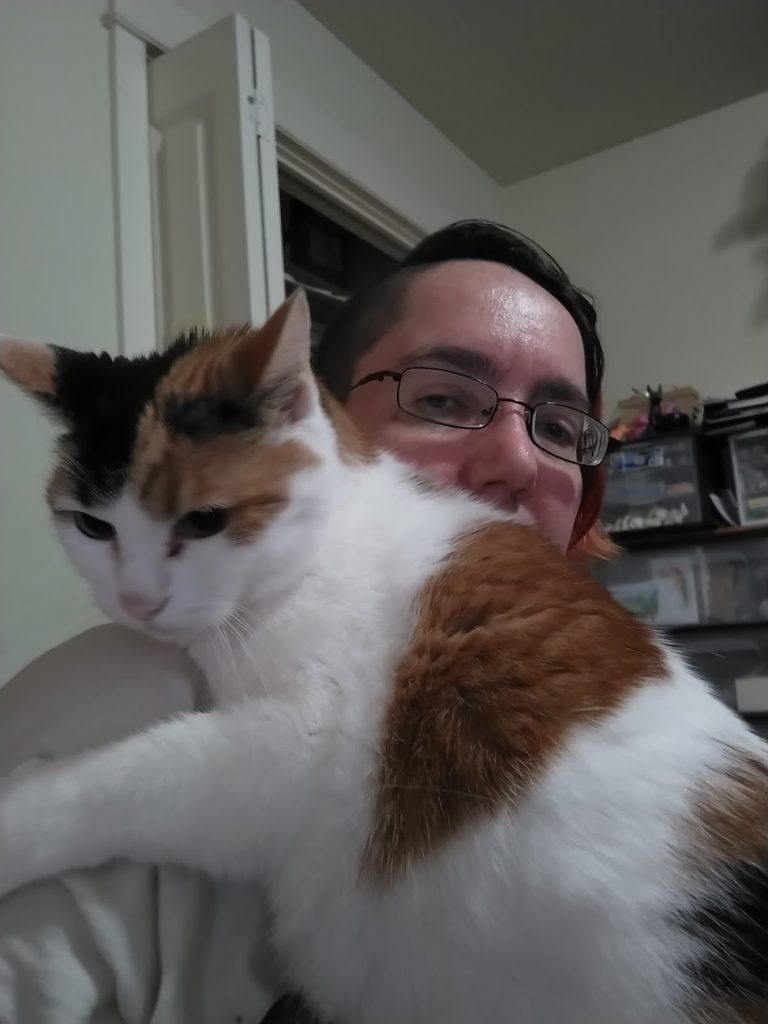
Where can people find you online?
On rare occasion when I have coherent thoughts, I blog on Dreamwidth at bladespark.dreamwidth.org but I’m most active on twitter @bladespark, where you can see my every little hummingbird notion, and also quite a lot of NSFW artwork, craft projects, and so on. I also have my self-published zines on Etsy (sparkcreatures) and in digital format on itch.io (bladespark).
Any in-person events coming up soon?
No dates yet, but I will eventually have a book signing at As You Like it in Eugene, Oregon. Their event room is unfortunately out of order, but I’m promised I’ll be booked in after they have it repaired, and I’m quite looking forward to it.
On this week’s People’s Guide to Publishing podcast, we’re joined by author Set Sytes, whose collection of wry horror short stories Born to Be Weird is out now, joining his underground hit How Not to Kill Yourself and a host of other books.
Set joined us from his home in York, England to talk about creativity, depression, the differences between self-publishing and traditional publishing, the editorial process, and the life saving power of imagination.
This week on the People’s Guide to Publishing podcast, Joe and Elly entertain a reader question about the economic theories behind how we run Microcosm. Neither one of us is an economist, though we do sometimes play one on the internet. So this question kind of caught us off guard. But we have fun dredging the depths of our brains for the very serious reading of our youths that made a lasting impression.